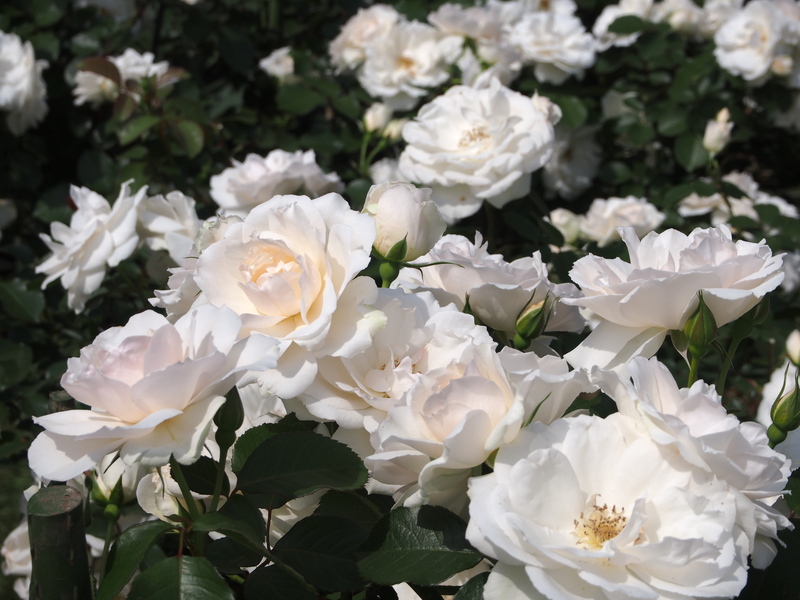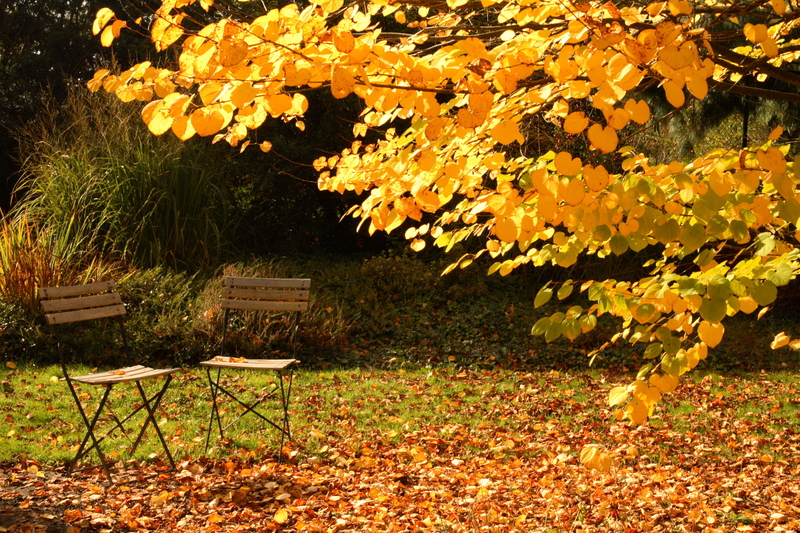Transform your garden with 9 fundamental tips for new gardeners
Posted on 21/08/2025
Transform Your Garden with 9 Fundamental Tips for New Gardeners
If you're newly embarking on your gardening journey, you're likely eager to watch your backyard blossom into a lush paradise. Discovering the core gardening fundamentals can make the difference between a struggling patch and a thriving sanctuary. Whether you have a small balcony or a sprawling yard, our comprehensive guide of 9 essential tips will ensure you lay the best foundation for gardening success. Let's transform your outdoor space together!
1. Understand Your Garden's Unique Environment
Every plot of land is different. Before planting anything, take time to observe your garden. Note how much sunlight it receives at different times, and test your soil to determine its pH and texture.
Key Things to Consider
- Sunlight: Is your garden mostly shady, partially sunny, or does it receive full sun all day?
- Soil Type: Is your soil sandy, loamy, or clay? Different plants prefer different soil conditions.
- Drainage: Does water pool after it rains, or does it drain quickly?
*Pro Tip:* You can purchase a simple soil test kit at your local garden center or online to help you understand nutrient levels and pH.

2. Plan Your Garden Layout Before Planting
Planning is a crucial step to transform your garden effectively. Sketch your garden's dimensions and map out where you want to place flower beds, vegetable patches, and paths. This advance planning will help you maximize your space and avoid overcrowding.
Why Planning Matters
- Prevents competition: Giving plants enough room lets them thrive.
- Improves aesthetics: A thoughtful arrangement creates visual harmony.
- Eases maintenance: Well-placed pathways make weeding and watering simpler.
Try using companion planting charts for vegetable gardens to see which plants grow best together or experiment with color combinations for an attractive flower garden.
3. Choose the Right Plants for Your Climate
One of the most fundamental gardening tips is to select plants suited to your local growing zone. Check the USDA hardiness zone map (for U.S. gardeners) or equivalent for your region to identify what thrives in your climate.
Smart Plant Selection
- Native plants are often easier to care for and more drought-resistant.
- Start with hardy perennials and easy-to-grow annuals like marigolds, sunflowers, or lettuce.
- Review plant tags and seed packets for sunlight, water, and spacing needs.
Remember: Picking the right plants from the start ensures a healthier, low-maintenance garden.
4. Prepare Your Soil for Success
Soil is the foundation of a thriving garden. The best gardens start with nutrient-rich, well-draining earth. Enriching your soil with organic matter improves its texture and fertility.
Steps to Improve Your Soil
- Remove weeds and debris from beds before planting.
- Add compost--either homemade or store-bought--to boost nutrients.
- Mix in organic mulch or well-rotted manure for better water retention and aeration.
Healthy soil leads to healthy plants. Replenish nutrients each season to keep your garden flourishing.
5. Water Wisely and Efficiently
Overwatering is a common mistake for new gardeners, while underwatering can stress your plants. Learning proper watering techniques ensures deep and strong root growth.
How-to Water Smart
- Water early in the morning to reduce evaporation and fungal diseases.
- Water at the soil level, not over the leaves, using soaker hoses or watering cans.
- Check soil moisture regularly--if the top inch of soil is dry, it's time to water.
- Mulch around plants to retain moisture and keep roots cool.
Consistent watering routines help beginners avoid the pitfalls of drought or saturation.
6. Mulch for Healthier and Happier Plants
Mulching is one of the easiest ways to boost your garden's health. Mulch insulates the soil, locks in moisture, and keeps weeds at bay.
Mulching Tips
- Organic mulches--such as wood chips, straw, or shredded leaves--also improve soil as they break down.
- Apply 2-3 inches of mulch around plants, avoiding direct contact with stems.
- Refresh mulch each season to maintain its benefits.
Regular mulching transforms your garden beds, making them richer and less prone to weeds!
7. Learn to Identify and Control Pests Naturally
Garden pests are inevitable, but you can manage them organically and create a balanced ecosystem. Avoid harsh chemicals and try natural control methods for a flourishing garden.
Natural Pest Management
- Encourage beneficial insects, such as ladybugs and lacewings.
- Hand-pick pests or remove affected leaves when possible.
- Use homemade sprays like diluted soap or neem oil for stubborn outbreaks.
- Plant pest-repelling flowers such as marigolds and nasturtiums among your crops.
Observation is key. Check plants regularly and address issues before they escalate.
8. Practice Regular Garden Maintenance
Routine care is a fundamental gardening principle for lasting results. Make time each week to walk your garden, pull weeds, deadhead flowers, and look for early signs of trouble.
Essential Maintenance Tasks
- Weed regularly to prevent competition for nutrients.
- Prune shrubs and deadhead spent blooms to encourage new growth.
- Check for diseases or pests and address them promptly.
- Keep pathways clear to improve access and reduce hazards.
Consistency is crucial for transforming your garden from good to spectacular!
9. Stay Curious and Keep Learning
Every gardener encounters challenges--don't be discouraged if things don't go perfectly at first! The best way to cultivate an inspiring garden is through continuous learning and experimentation.
Grow Your Gardening Knowledge
- Keep a garden journal, noting what works and what doesn't.
- Connect with local gardening clubs or online forums for advice and inspiration.
- Read books, follow gardening blogs, and watch video tutorials.
Remember, successful gardening is a journey, not a destination. With curiosity and patience, you can transform your garden into a thriving oasis!

Bonus: Transform Your Garden Year-Round
Seasonality plays a key role in home gardening. To keep your landscape attractive and productive throughout the year:
- Choose plants with staggered bloom times for continuous visual interest.
- Plant bulbs in the fall for early spring color.
- Grow cool-season crops like spinach and peas in early spring and autumn.
With a bit of planning, your garden can offer beauty and bounty in every season.
Conclusion: Step Into Your New Gardening Adventure
Starting your first garden can be overwhelming, but these 9 fundamental gardening tips for beginners lay the groundwork for a flourishing backyard retreat. Embrace the learning process, have patience, and enjoy the journey as you watch your landscape come to life.
- Assess your garden's unique conditions.
- Map out your planting strategy.
- Select resilient, climate-appropriate plants.
- Fortify your soil with compost and mulch.
- Master wise watering.
- Mulch for moisture and weed control.
- Manage pests using natural methods.
- Stay on top of maintenance.
- Grow your love of gardening through ongoing learning!
Now, with these essential gardening fundamentals, step outside and get started--the garden of your dreams is closer than you think!
Share your gardening tips and success stories in the comments--let's inspire new gardeners everywhere!
Latest Posts
Revolutionize your space with container gardening
Essential Steps to Shield Your Garden Plants This Winter
A Green Landscape in Vertical Gardening

